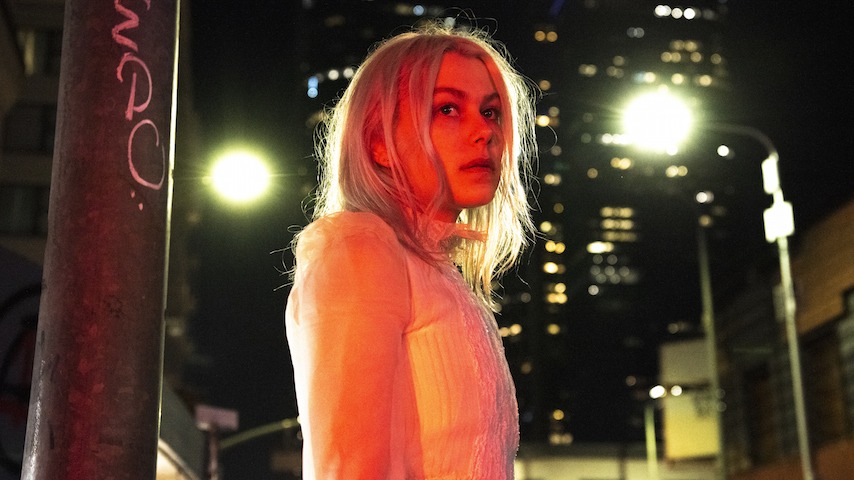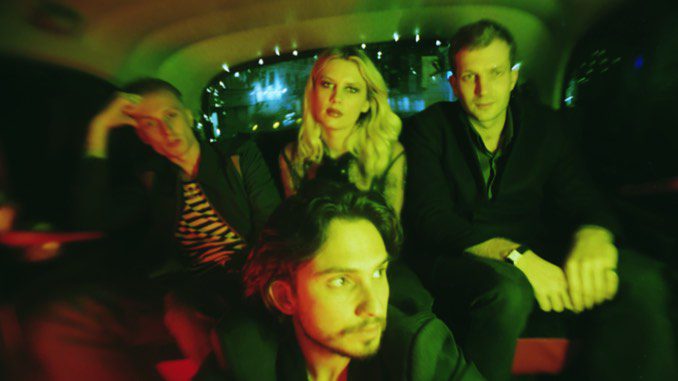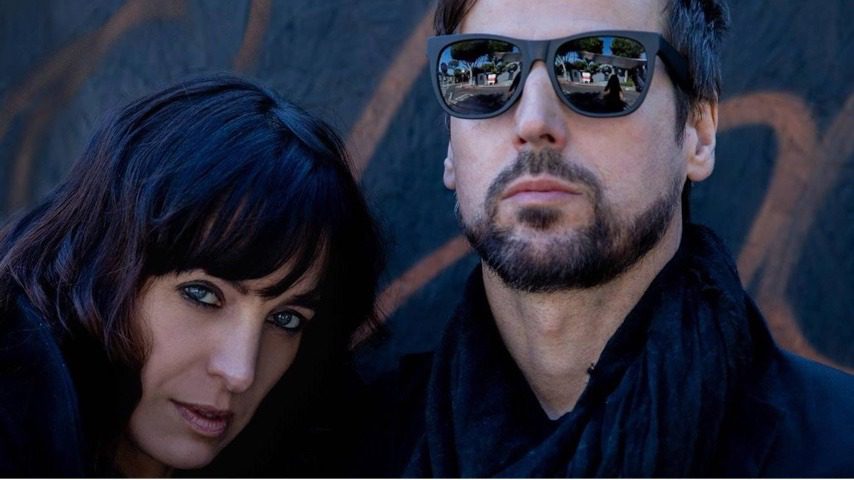Phoebe Bridgers is part of the zeitgeist now. There’s no doubt about it: She’s now graduated from critical darling to beloved music personality on the brink of pop culture recognizability. Liking Phoebe Bridgers is like being caught up on all the best b-list HBO shows, watching A24 movies or reading Jia Tolentino: It’s cool.
When I first heard Bridgers, it was at the tail-end of 2017, following the release of her adored debut album Stranger in the Alps. Her song “Smoke Signals” landed on many year-end lists, and I remember myself and a group of musically like-minded friends growing attached to the album while studying for finals. We interviewed her for my college newspaper in the library basement and attended her 50-capacity show in a now-shuttered club in Birmingham, Ala. She had people’s attention, but no one really knew who she was.
Cut to almost three years later, and she has two acclaimed supergroup projects in her rearview and a devout social media following with hundreds of thousands of fans to match. She has toured and/or collaborated with indie giants like The National, Lord Huron and The 1975, not to mention her own teenage idol, Conor Oberst of Bright Eyes, who started a project with her called Better Oblivion Community Center. Her career is technically still in its infancy, but she’s already in the early stages of doing what so many indie artists continually struggle to do: cross over to mainstream popularity. She’s obviously not topping Billboard charts or opening for Post Malone, but she’s making a name for herself as one of the foremost songwriters of her generation, gaining a Wilco-like reputation with one foot in the indie world and one outside of it. Maybe you don’t listen to her personally, but your friend probably does. Maybe her new album Punisher isn’t really your thing, but you always like her tweets when they pop up on your feed. Your parents don’t know who she is (or they just think she and Phoebe Waller-Bridge are one in the same), but your cool cousin wore her t-shirt to Thanksgiving.
It also helps that Bridgers is an anxious millennial’s dream come true. Now 25, she has a foothold on the emo-folk genre—a sound that hasn’t been hugely popular (apart from, say, The Front Bottoms) since Bright Eyes or Elliott Smith—and juices up her folk-indebted songs with morose humor, devastating details and plenty of grounds for crying. She’s blunt in interviews, clever on camera and hilarious on Instagram. She has an unmistakable goth energy (and a self-professed love of “goth shit”), but you don’t need to wear all black to latch onto her vibe. She’s involved in social justice issues in a way that feels earnest. As one profile put it: Everyone wants to be her friend.
And since friendship with our favorite musicians has never been a reality, everyone is doing the next best thing: listening to her sophomore album Punisher on repeat. The record, which we at Paste described as feeling “not just sad, but real,” arrives at a particularly inconvenient time for music releases. We’re several months into a global pandemic, and touring has thus fizzled, so there’s no way to promote a record on the road as one normally would. Throw in a long overdue uprising against racial injustice, and it can feel like there’s really no point in releasing an album right now at all.
Bridgers handled that aspect well: “I’m not pushing the record until things go back to ‘normal’ because I don’t think they should,” she tweeted last Thursday, just before releasing the album 24 hours early. She remains devoted to the Black Lives Matter movement, as we all should.
But in terms of this album’s arrival in the midst of a general sense of global doom, there’s an added layer of beauty and specialness in getting to sink deep into Punisher’s weary depths for 40 minutes or so, either as a means of matching sad music to one’s own bereavement or just tuning it all out in exchange for a skeleton costume or ghostly banjo number.
On release day, Twitter belonged to Bridgers and Punisher. She wasn’t just the hot topic among critics and various music outlets—she was the subject of infinite memes (including some, like this Normal People-inspired joke, that incorporate other pop culture touchstones). I noticed that my Spotify feed was entirely dominated by Bridgers that day as various friends dipped their toes into Bridger’s murky musical pool, some for probably the last time. But they all at least gave Punisher a try, because it was the cool thing to do.
It gives me great comfort to know that so many people have carved out space for Bridgers, who has been one of my favorite artists since Alps, in their hearts. Surely this has something to do with the fact that sad music is necessary in times of great collective grief, but it probably has more to do with Bridgers’ talents as a songwriter. Or maybe it’s just the start of Cancer season. But we can’t deny that Bridgers possesses an immediacy and ability to deliver emotional gut punches with a gentle hand in a manner similar to that of the aforementioned Smith, who also happens to be the subject of Punisher’s title track (“What if I told you I feel like I know you / But we never met? It’s for the best,” she sings, addressing the late folk singer). She can be scary one moment (“I’ve been playing dead / My whole life / And I get this feeling / Whenever I feel good / It’ll be the last time”) and wry the next (“I hate your mom / I hate it when she opens her mouth / It’s amazing to me / How much you can say / When you don’t know what you’re talking about”). She has conquered the indie world and is now making her way into the culture at-large. Hey, world: Get ready to feel your feelings.
Is she really the voice of a generation? Who knows—can there ever be only one? But she is a voice we need right now, if only for our own individual relief and pleasure. She’s one of the only artists working whose music gives us such open permission to be miserable while she stows away in her L.A. apartment deviously cracking horny Bob Dylan jokes on Twitter. Bridgers has given us both an outlet for our misery and an escape into her weird, beautiful world, where the skies are dark 24/7 and Halloween is every day of the year. Punisher is a safe place to cry. And the greatest gift is that we all get to spiral into sadness together.
Ellen Johnson is an associate music editor, writer, playlist maker, coffee drinker and pop culture enthusiast at Paste. She occasionally moonlights as a film fan on Letterboxd. You can find her tweeting about all the things on Twitter @ellen_a_johnson.
Watch Bridger’s 2017 Paste Studio session:




